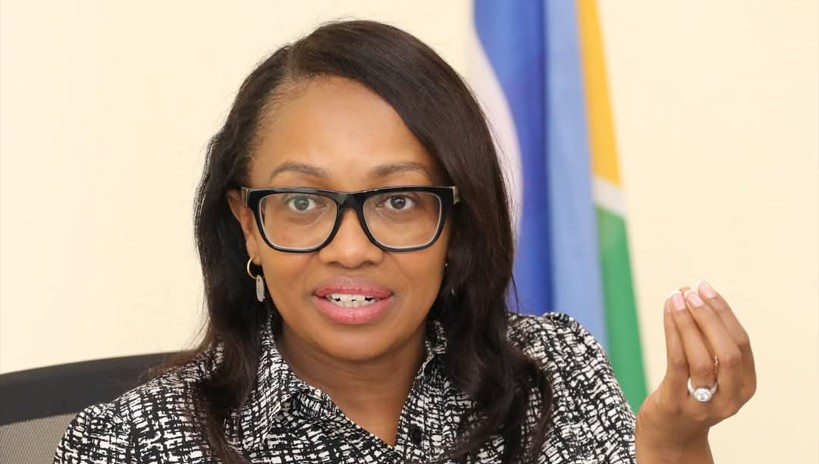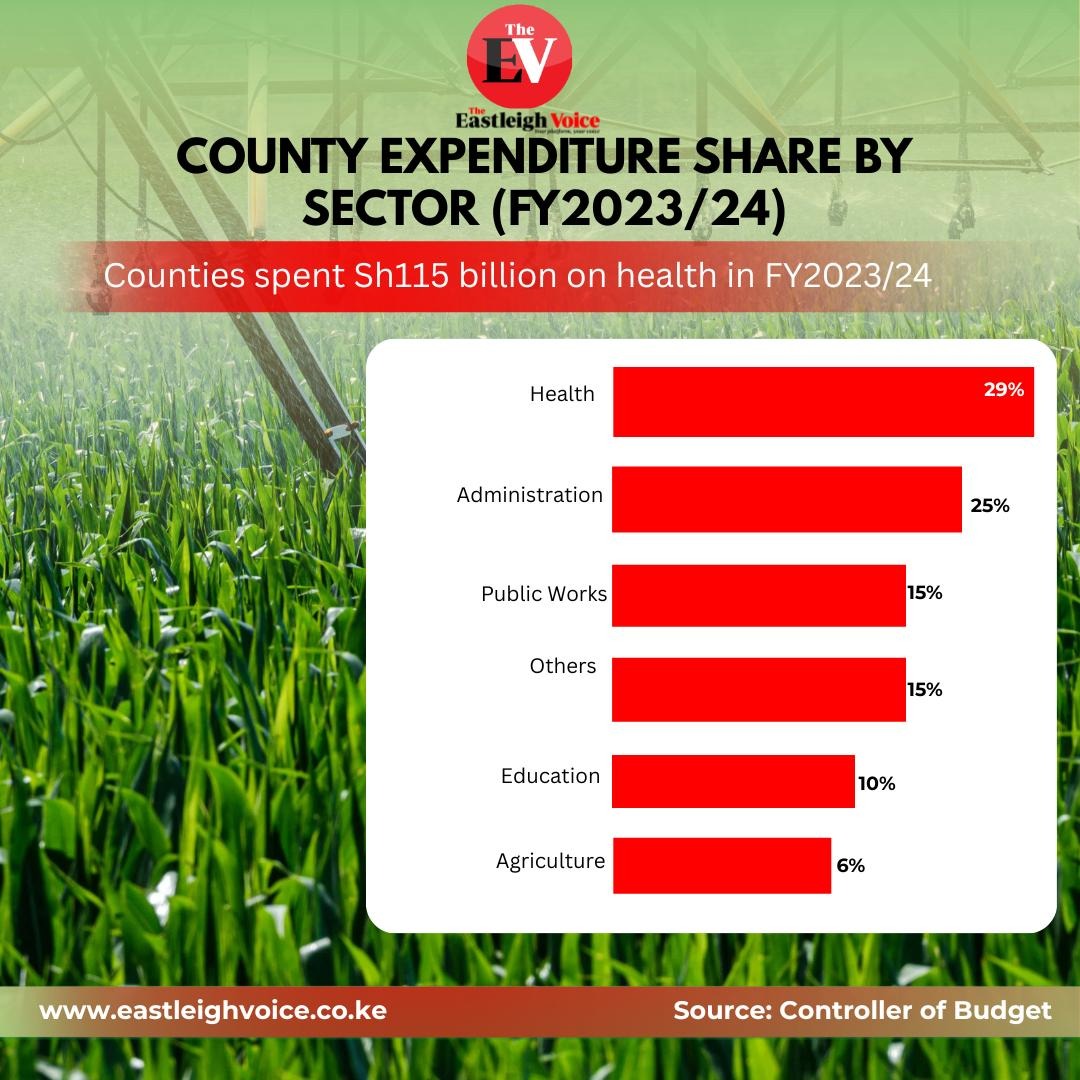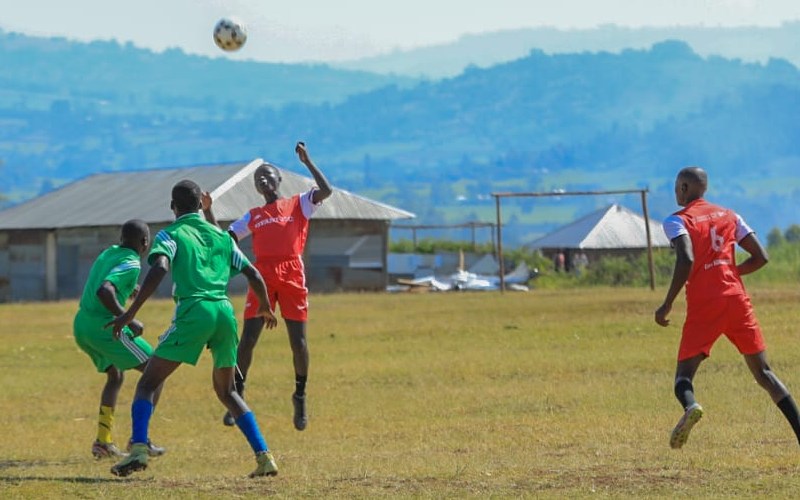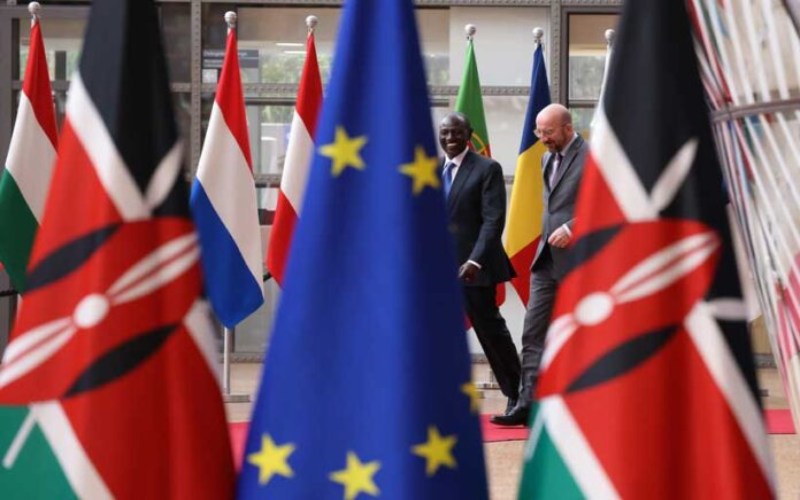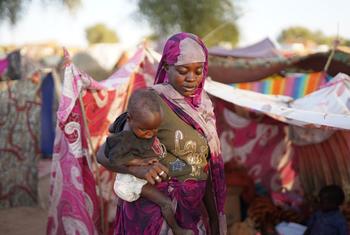WHO, partners call for immediate action to address escalating health, humanitarian crisis in Sudan
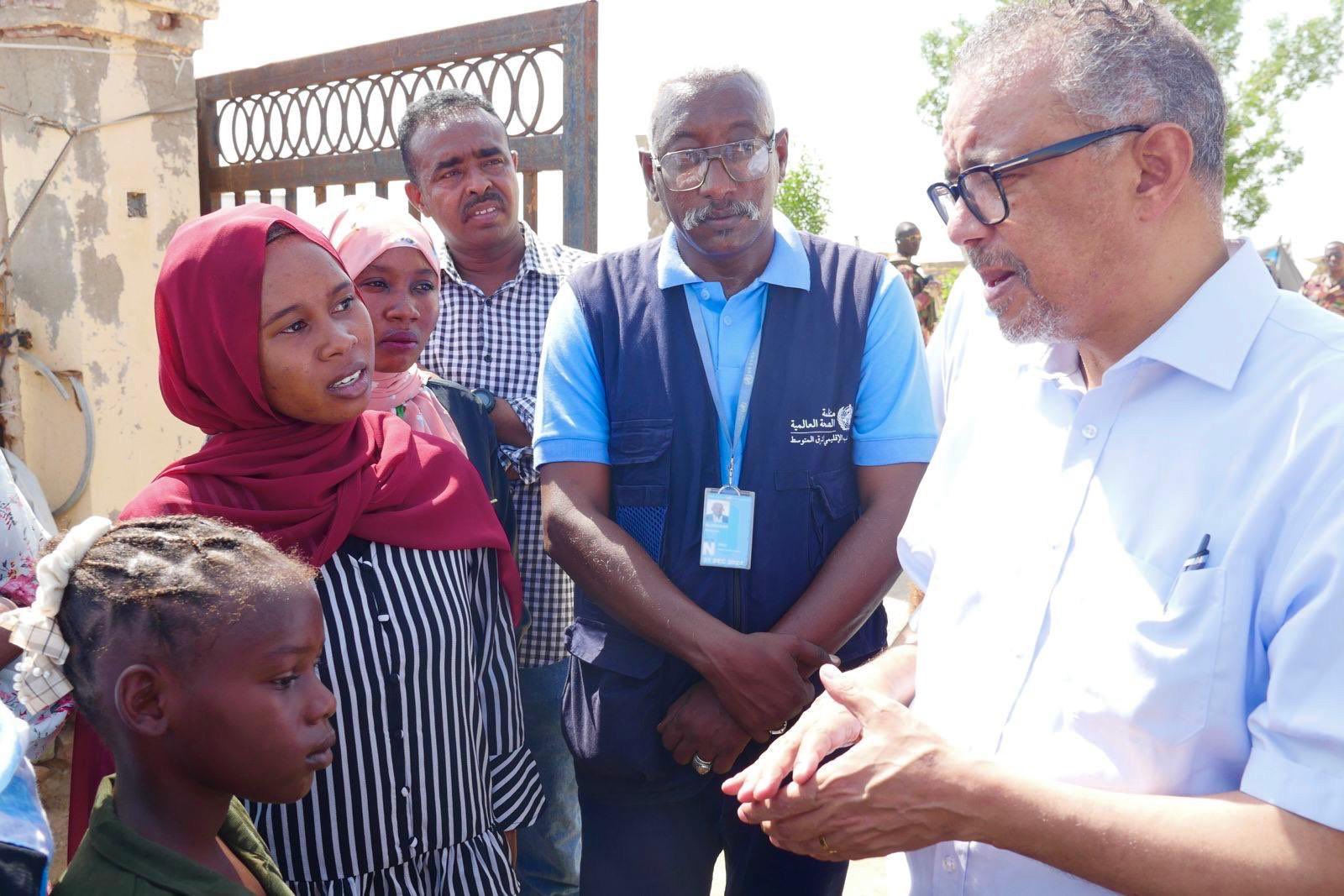
Dr Tedros urged global leaders to "wake up" and assist Sudan in escaping its current crisis.
The World Health Organisation (WHO) has reiterated its commitment to reach all Sudanese in need and has urged the international community to take immediate action to address the escalating health and humanitarian crisis in Sudan.
This call to action comes after a two-day mission to Port Sudan by WHO Director-General Dr. Tedros Adhanom Ghebreyesus and Regional Director Dr. Hanan Balkhy.
More To Read
- All we want for Sudan is peace, say children fleeing violence
- Sudanese herders struggle to safeguard livestock amid devastating war
- ICC sentences Sudanese militia leader Ali Kushayb to 20 years for Darfur war crimes
- Sudan puts Russian Red Sea naval base plans on hold to focus on domestic crisis
- Sudan’s crisis deepens with communities trapped in ‘siege conditions’
- From protesting tyranny to saving lives: How Sudan’s networks are responding to war
During their visit this week, they met with key Sudanese leaders, including Lt. Gen. Abdul Fatah Al-Burhan, Chairman of Sudan’s Transitional Sovereignty Council; Deputy Chairman Dr. Malik Agar; and Federal Minister of Health Dr. Haitham Mohamed Ibrahim Awadallah.
The meetings focused on the devastating impact of the ongoing conflict in Sudan and the urgent need for unrestricted humanitarian access to deliver life-saving aid to those affected.
“The international community has seemingly forgotten about Sudan and is paying little heed to the conflict tearing it apart, with serious repercussions for the region,” Dr. Tedros said during a press conference.
“That is why I have come to Sudan. I am here, with my sister Dr Hanan Balkhy, WHO Eastern Mediterranean Regional Director, to meet with the wide range of partners involved in the response, and to call for urgent and scaled-up action to provide more resources, more access to humanitarian aid, and more security to health workers and the patients they serve.”
Dr Tedros urged global leaders to "wake up" and assist Sudan in escaping its current crisis. “We must not fail the people of Sudan,” he emphasised.
The ongoing war has left much of Sudan’s health system in ruins, with over 100 attacks on healthcare facilities resulting in numerous casualties among health workers and patients.
The insecurity has led many health workers to flee with their families, further worsening the shortage of medical staff and severely weakening the health system’s ability to provide essential services to those in need.
During their mission, Dr Tedros and Dr Balkhy visited a nutrition stabilisation centre supported by WHO, where they witnessed the severe impact of the malnutrition crisis affecting Sudan.
Millions of malnourished children
Currently, 3.6 million children are acutely malnourished, with 730,000 suffering from severe acute malnutrition.
We cannot fail the people of #Sudan.
— Tedros Adhanom Ghebreyesus (@DrTedros) September 8, 2024
What 🇸🇩 needs now is:
• Increased international support to address the humanitarian suffering
• Unfettered, safe access to deliver aid to all Sudanese in need
• Protection of health workers and facilities
• and, above… pic.twitter.com/97H3BAaICa
The conflict has compounded food insecurity, making it increasingly challenging to deliver essential nutrition and health services to vulnerable populations.
At an internally displaced persons (IDP) camp, the two observed the dire conditions facing the residents, who are struggling with a lack of food, medicine, and clean water.
These conditions heighten the risk of disease outbreaks and other health threats, particularly for the estimated four million women and girls at risk of gender-based violence due to the ongoing conflict.
Dr Balkhy highlighted the need to respect the sanctity of healthcare, as required under international humanitarian law. “Sudan’s health infrastructure is in ruins, with many facilities destroyed, looted, or abandoned.
To rebuild and stabilise the health system, there must be significant investment not only in restoring facilities but also in strengthening the health workforce,” she stated.
She further emphasised that the future stability and economic recovery of Sudan are dependent on a functioning health system.
The WHO Regional Director reiterated that the priority is to ensure that every Sudanese in need receives the necessary assistance, no matter where they are in the country.
“This,” she told the press conference, “will only be possible through sustained peace, substantial investment in health infrastructure, and full, unimpeded access for humanitarian efforts across Sudan by whatever means needed, including both cross-line and cross-border from neighbouring countries.”
Dr Balkhy stressed the need for peace as the only viable path forward, stating, “The only way forward is peace, for which the warring parties themselves have the greatest responsibility, with support from the international community.
The world must not look away—this crisis demands our immediate and collective response.”
The ongoing conflict in Sudan has left approximately 25 million people in desperate need of humanitarian aid, with 14.7 million requiring urgent assistance for various life-saving support.
The humanitarian sector has requested US$ 2.7 billion to address these needs, but this amount represents less than half of the required funding.
WHO also expressed concern over its current funding gap for the Sudan health crisis, revealing that only 24% of the requested amount has been received, severely limiting its ability to address the crisis effectively.
Top Stories Today
